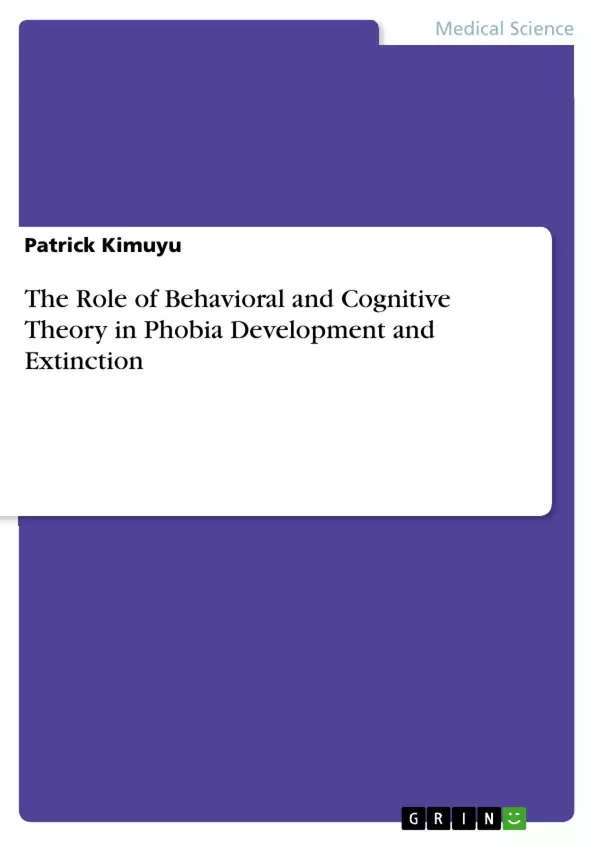This case study report provides a comprehensive discussion based on the psychological construction of emotions through the application of behavioral and cognitive theory in analyzing the given case study.
Phobia is increasingly becoming a central point of attraction in the field of emotion research. Research psychologists are interested in generating more evidence to reconcile the wide differences that exist from the current findings. From a critical perspective, consensus on the basis of fear or phobia appears to be unlikely in the foreseeable future. This is attributable to the fact that psychologists perceive phobia as a psychological construct, whereas biologists argue fear to be an aspect that is discoverable through scientific inquiry. Another aspect that has contributed to the controversy surrounding research on phobia is the lack of consensus on how to investigate this emotion. Despite these controversies, clinical scientists are still engaged in intensive research on fear as an underlying aspect in mood and anxiety disorders. From a real-life perspective, phobias are not new in animals, including humans. As such, Adolphs perceives fear to be a central state of organisms.
Inhaltsverzeichnis (Table of Contents)
- Introduction
- Case Study Overview
- Describing Sally's Phobia Using Inference and Research of the Development of Simple Phobias
- Explaining Phobia through Behavioral and Cognitive Theory
- Classical conditioning
- Operant conditioning
- Observational learning
- The Process of Extinction in Overcoming Phobia
- Tenets of Cognitive Theory in Overcoming Phobia
- Conclusion
- References
Zielsetzung und Themenschwerpunkte (Objectives and Key Themes)
This case study aims to provide a comprehensive discussion of Sally's dog phobia, utilizing behavioral and cognitive theory to analyze her experiences. The study explores the development, maintenance, and potential treatment approaches for simple phobias, focusing on the interplay between emotional and cognitive processes.
- The development of simple phobias
- The role of classical, operant, and observational learning in phobia development
- The application of cognitive theory to understand and address phobias
- The process of extinction in overcoming phobias
- The influence of fear structures on attention and memory
Zusammenfassung der Kapitel (Chapter Summaries)
- Introduction: Introduces the topic of phobia and its significance in research, highlighting the controversies surrounding its definition and investigation. The case study of Sally is presented as a focal point for exploring the role of behavioral and cognitive theory in understanding phobia.
- Case Study Overview: Provides details about Sally, a 23-year-old woman with a history of dog phobia. The case study highlights the impact of the phobia on Sally's daily life and her social interactions.
- Describing Sally's Phobia: Explores the development of simple phobias, including dog phobia, through an analysis of the relationship between emotion and cognition. The chapter discusses information processing theories and the impact of behavioral theory on understanding anxiety and its acquisition.
- Explaining Phobia through Behavioral and Cognitive Theory: Examines three main approaches to explaining phobias: classical conditioning, operant conditioning, and observational learning. These theories provide a framework for understanding how abnormal behaviors, including phobias, are formed and maintained.
Schlüsselwörter (Keywords)
This work focuses on the role of behavioral and cognitive theory in phobia development and extinction. Key terms include classical conditioning, operant conditioning, observational learning, cognitive theory, information processing, fear structures, anxiety, and extinction.
- Arbeit zitieren
- Patrick Kimuyu (Autor:in), 2018, The Role of Behavioral and Cognitive Theory in Phobia Development and Extinction, München, GRIN Verlag, https://www.grin.com/document/419464



